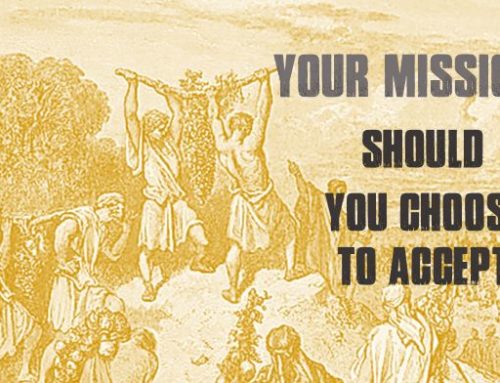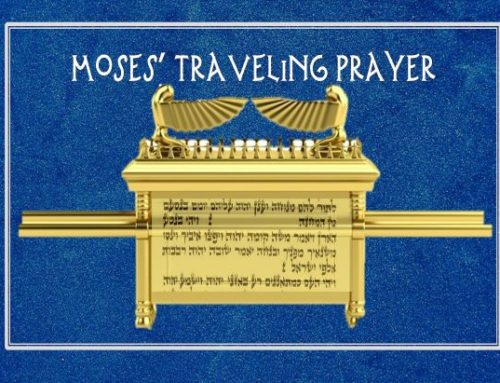Torah Portion Yayishlach, (Genesis 21.3-36. 43, Obadiah 1. 1-21)
“Now Jacob came safely to the city of Shechem, which is in the land of Canaan, when he came from Paddan-aram, and camped before the city. He bought the plot of land where he had pitched his tent from the hand of the sons of Hamor, Shechem’s father, for a hundred pieces of money. Then he erected there an altar and called it El-Elohe-Israel.” Gen. 33. 18-19 NASB
Have you ever gotten into a situation safely enough, but escaping cost you dearly? Our Torah Portion, Vayishlach, describes Jacob’s return to the Promised Land with two camps of families, flocks and herds, and importantly the text says, “whole” (shalem). Shalem, translated “safely”, also means whole. Some commentaries remark, whole in body and his finances.[1] Even Jacob’s encounter with Esau turned in his favor. This was the answer to his prayers some twenty years earlier. But things took a wrong turn in Shechem. To a degree many can all identify with Jacob. Within a short time he lost money, his daughter’s dignity, son’s reputation, a nursemaid, and Rachel his wife, all the while, loved by God, inheritor of Promises, and fruitful. How can such a dichotomy of truths exist together? I too have struggled to understand life and loss. Whether you are headed to Shechem, buying land, or packing up to leave, Jacob’s story gives hope.
I. Getting into Shechem
In Last weeks Parashah, Jacob was providentially guided to the “House of God”, Bethel. There, where the heavens were opened and God spoke to him, he promised to make that location God’s house. Now Jacob returned safely, and even escaped harm from Esau, but rather than go to Bethel, he detoured to Shechem. How long was he in Shechem? Long enough to buy property, build a home and dwellings for his animals. We are also told that he built an altar, calling it El-Elohe-Israel. Normally, the patriarchs built altars because they heard a word or had an encounter with God. Here there is neither. Jacob came to a place of silence, and the text may give us a clue as to why. In fact, the only time God does speak in Shechem was to call him leave.
Shechem took much more from Jacob than it gave. His daughter Dinah went out to visit the other girls of the city, and there she was raped by Hamor, the son of Shechem, the Head of the community. You know the story how Levi and Simeon convinced the men of the city to be circumcised, and in revenge slaughtered them all. Jacob arrived whole, and yet he will lost money, reputation, and his daughter was irreparably scarred.
On some level we can all identify with getting into a bad place. No wonder the Jewish commentaries call Shechem a “place of misfortunes”. Not only was it the place where Dinah was defiled, it was the place where Joseph was lost, and the kingdom of David would be split. [2] Originally, I wondered if Jacob went to Shechem to avoid Esau, but could it be he was avoiding the House of God – Bethel? Have you ever gotten into such a place, and even built an altar hoping God will approve? I think we all have to some degree. Pastors have taken churches without praying. Businessmen have moved their families despite warning signs. Bad things happen in Shechem. The good news is God will not leave us in Shechem. When it was the worst, he heard the voice of the Lord.
“Then God said to Jacob, “Arise, go up to Bethel and live there, and make an altar there to God, who appeared to you when you fled [a]from your brother Esau.” Gen. 35. 1 NASB
II. Getting out of Shechem
“So Jacob said to his household and to all who were with him, “Remove the foreign gods which are among you, and purify yourselves and change your garments; and let’s arise and go up to Bethel, and I will make an altar there to God, who answered me on the day of my distress and has been with me wherever I have gone.” Genesis 35. 2-3 NASB
Could the idols of compromise be the real source of Jacob’s trouble? Perhaps this is the reason he has not heard a word. I used to think Jacob went to Shechem to distance himself from Esau this time, but might he have also been running from Bethel? Jacob’s misfortunes in Shechem were spiritual. How do we get out Shechem? It begins with hearing God and repentance.
- Hearing God’s voice, “Arise, go up to Bethel and live there”. 35. 1
- Remove the foreign gods which are among you. Gen. 35 2
- Purify yourselves, change your garments. 35. 2-4
Following God meant no room for compromise. Far too long Jacob tolerated idols in the family tents. Rachel, who struggled to conceive for years, finally rids herself of the idols she stole. At this point we see Jacob exercising his spiritual authority in the home. And this brings us to the mysterious part of the text.
“So they gave Jacob all the foreign gods which they had and the rings which were in their ears, and Jacob hid them under the oak which was near Shechem.” Gen. 25. 4 NASB
III. Living in Bethel
Only in Bethel can Jacob truly live. At Shechem he bought land, built a house, but for all the Hebrew says he “camped” there, some translate it as pitched a tent. Gen. 33. 18 Shechem is not a place to live. Our home is Bethel. Our dwelling is in the “House of God”. Before he could dwell in Bethel, he buried his sin and shame under the tree, this mysterious Oak. If we would dwell in the sweet presence of fellowship with the Creator, we must do something with our sin and shame. Like Jacob, we have carried sin too long. There only remedy is to lay them down at the tree of crucifixion – the Cross of Calvary. There Messiah’s blood covers our sin.
Now Jacob could truly live or dwell in Bethel, and there he again built an altar.
“Then he built an altar there, and called the place El-bethel, because there God had revealed Himself to him when he fled from his brother.” Gen. 35. 7 NASB
Now he was in the place to hear God speak. The Lord confirmed the promises in Jacob’s life and gave him new ones for his future. Jacob lost much and camped too long in Shechem, but his greatest achievement was losing his sin and shame.
Of the Things I Lost in Shechem
Jacob came whole to the city
At Shechem he bought a plot
And of the things lost in Shechem
Some were needed, some not
In great loss he bid
His wives, daughter, and sons
And Under “Shechem’s Oak” they hid
Sin from light of the Sun
Jacob journeyed to Bethel’s tree
Zion’s ancient “Oak of tears”
And From earth’s bonds set free
Deborah, full of life and years
“Bethel’s Oak” still bids
Jacob’s daughters and sons
To find their sins hid
Beneath the Cross of God’s Son.
Of all the things he lost in Shechem
Some needful, some not
He did not miss the sin
Buried in a forgotten spot.
J.E.F
Conclusion
Perhaps circumstances have forced you into a place that you were never intended. At Shechem Jacob built an altar and called on the name of the Lord. At Bethel he built an altar because God called him. It is easier to get into Shechem and the longer we stay the more we lose. A second thing that the Jacob’s story teaches us is that you may camp in Shechem, but you can never live there. The old gospel song says, “This world is not my home, I’m only passing through…” True living comes through the abiding presence of the place where God dwells. In other words, God called Jacob to live where he dwells. What kept Jacob from coming home, may be the same that keeps many of us. We are carrying the shame of this world. Thankfully, there is a tree to lay them down, the Cross of Yeshua, and there is a cleansing stream to wash our filth away.
“Husbands, love your wives, just as Christ (Messiah) also loved the church (kehillah) and gave Himself up for her, so that He might sanctify her, having cleansed her by the washing of water with the word, that He might present to Himself the church in all her glory, having no spot or wrinkle or any such thing; but that she would be holy and blameless.” Ephesians 5. 25-27 TLV
Shavuah Tov from Zion
[1] See Rashi’s Commentary on Genesis 33. 18 & Gen. Rabbah 79:5, Shab. 33b.
[2] Ibid





Beautiful and poignant poem J!
Thank you for these weekly challenges to increase my faith and discipleship.